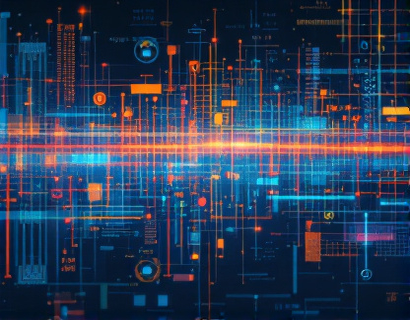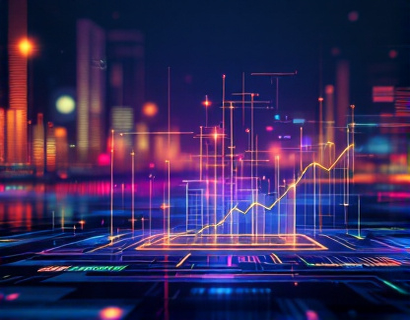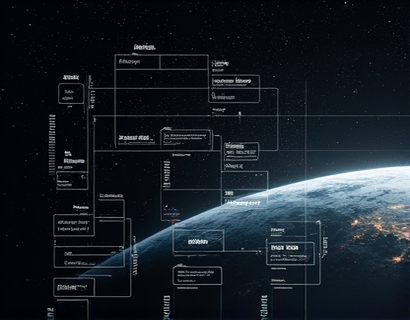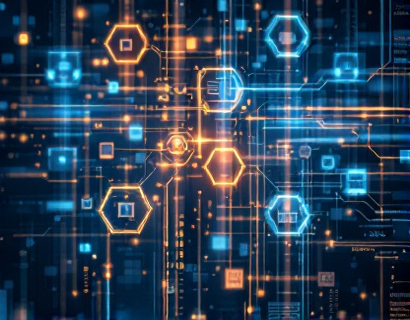Decentralized Governance and Analytics: Transforming DAOs with Innovative Software Solutions
In the rapidly evolving landscape of decentralized technologies, Decentralized Autonomous Organizations (DAOs) have emerged as a groundbreaking model for governance and management. These organizations leverage blockchain technology to operate without central authority, relying instead on smart contracts and community-driven decision-making. However, the complexity and scale of DAOs present unique challenges in terms of governance and analytics. This article explores cutting-edge software solutions designed to revolutionize DAOs by streamlining governance processes and providing comprehensive analytics, enabling managers and administrators to make informed decisions and drive sustainable growth through enhanced collaboration and transparency.
The Need for Advanced Governance Tools in DAOs
DAOs operate on a foundation of decentralized decision-making, which inherently involves multiple stakeholders with diverse interests. Effective governance is crucial to ensure that the organization functions smoothly and aligns with its mission. Traditional governance methods often fall short in the DAO context due to the lack of centralized control and the need for transparent, verifiable, and efficient processes. This is where advanced software solutions come into play, offering tools that can manage complex governance tasks, facilitate communication, and provide real-time insights into the organization's performance.
Streamlining Governance with Smart Contracts and Automation
One of the most significant advantages of DAOs is the use of smart contracts, which automate and enforce the rules and procedures defined by the community. Innovative software solutions leverage smart contracts to streamline governance by automating routine tasks such as proposal voting, funding allocation, and role management. These tools ensure that decisions are executed transparently and without human bias, reducing the risk of errors and conflicts. For instance, a governance platform can automatically trigger the execution of a smart contract when a proposal reaches the required threshold of votes, ensuring that the decision is implemented promptly and efficiently.
Enhancing Transparency and Trust
Transparency is a cornerstone of DAO governance, and software solutions play a vital role in maintaining and enhancing this transparency. Blockchain-based platforms provide immutable records of all transactions and decisions, allowing members to track the organization's activities in real-time. This level of transparency builds trust among members and stakeholders, fostering a more collaborative and engaged community. Advanced analytics tools can further enhance this by providing visualizations and reports that highlight key metrics and trends, making it easier for members to understand the organization's performance and make informed decisions.
Comprehensive Analytics for Data-Driven Decision Making
Effective governance in DAOs requires data-driven decision-making, and sophisticated analytics tools are essential for this purpose. These tools collect and process vast amounts of data from various sources, including blockchain transactions, member interactions, and external market indicators. By analyzing this data, software solutions can provide insights into the organization's financial health, community engagement, and strategic initiatives. For example, a dashboard might display real-time metrics on token distribution, voting patterns, and fund utilization, enabling administrators to identify areas for improvement and optimize resource allocation.
Predictive Analytics and Risk Management
Beyond basic analytics, advanced software solutions offer predictive analytics capabilities that can forecast future trends and potential risks. By leveraging machine learning algorithms, these tools can analyze historical data to identify patterns and make predictions about future outcomes. This is particularly valuable for DAOs, which often operate in dynamic and uncertain environments. For instance, predictive analytics can help identify potential financial risks, such as token price fluctuations or liquidity issues, allowing the organization to take proactive measures to mitigate these risks. Additionally, predictive insights can inform strategic planning, helping the DAO to align its goals with market conditions and community needs.
Enhancing Collaboration and Community Engagement
Collaboration and community engagement are vital for the success of any DAO. Software solutions designed for DAOs include features that facilitate communication, collaboration, and participation. For example, integrated chat and discussion forums enable members to discuss proposals and initiatives in real-time, fostering a more dynamic and inclusive decision-making process. Task management tools allow members to contribute to specific projects and track progress, ensuring that everyone is aligned and accountable. These features not only enhance collaboration but also increase member engagement, leading to a more vibrant and active community.
Tokenization of Governance Rights
Tokenization is another innovative approach that software solutions can facilitate in DAOs. By tokenizing governance rights, DAOs can create a more fluid and flexible governance model. Tokens can represent voting rights, participation rewards, or access to certain resources, allowing for a more granular and fair distribution of power. Software tools can manage the issuance, transfer, and revocation of tokens, ensuring that the governance process is transparent and secure. This tokenization model also encourages broader participation, as members can earn and trade tokens based on their contributions and engagement with the organization.
Challenges and Considerations in Implementing Governance Software
While the benefits of advanced governance software are clear, there are several challenges and considerations that DAOs must address when implementing these solutions. First, the technical complexity of blockchain and smart contracts requires a certain level of expertise, which not all DAOs may possess. Therefore, user-friendly interfaces and comprehensive documentation are essential to ensure smooth adoption and usage. Additionally, security is a paramount concern, as any vulnerabilities in the software could compromise the organization's integrity. Regular audits and updates are necessary to maintain the highest security standards.
Scalability and Interoperability
As DAOs grow, their software solutions must scale to handle increasing amounts of data and user activity. Scalability ensures that the platform remains performant and responsive, even as the organization expands. Interoperability is another critical factor, as DAOs often need to interact with other blockchain projects and ecosystems. Software solutions that support multiple blockchain platforms and protocols can enhance the DAO's flexibility and integration capabilities, opening up new opportunities for collaboration and growth.
Case Studies: Successful Implementation of Governance Software
Several DAOs have successfully implemented advanced governance software, achieving significant improvements in efficiency and transparency. For example, a decentralized finance (DeFi) DAO used a governance platform to streamline its proposal and voting processes, reducing decision-making time by over 50%. The platform's real-time analytics dashboard provided valuable insights into token distribution and community activity, enabling the DAO to make more informed strategic decisions. Another example is a content creation DAO that utilized tokenized governance rights to incentivize high-quality content production. The software managed the token economy, ensuring fair distribution and high engagement, leading to a thriving community and sustainable growth.
Lessons Learned
These case studies highlight several key lessons for DAOs looking to implement governance software. First, the choice of platform should align with the organization's specific needs and technical capabilities. Second, community involvement is crucial for the success of any governance initiative, and software solutions should facilitate active participation. Third, continuous improvement and adaptation are necessary as the DAO evolves and faces new challenges. By learning from these examples, DAOs can better navigate the implementation process and maximize the benefits of advanced governance tools.
Future Trends in DAO Governance Software
The field of DAO governance software is rapidly evolving, with several emerging trends poised to shape the future of decentralized organizations. One such trend is the integration of artificial intelligence (AI) and machine learning (ML) to enhance decision-making processes. AI-driven analytics can provide deeper insights and more accurate predictions, helping DAOs to optimize their strategies and respond to market changes more effectively. Another trend is the development of cross-chain solutions that enable seamless interaction between different blockchain networks, expanding the potential for collaboration and resource sharing.
User-Centric Design
As the user base of DAOs becomes more diverse, there is a growing emphasis on user-centric design in governance software. Intuitive interfaces, multilingual support, and accessibility features are becoming increasingly important to ensure that all members can participate effectively. Software solutions that prioritize user experience not only enhance adoption rates but also foster a more inclusive and engaged community.
Conclusion
In conclusion, innovative software solutions are transforming the landscape of DAOs by streamlining governance processes and providing comprehensive analytics. These tools empower managers and administrators to make informed decisions, enhance collaboration, and drive sustainable growth. By embracing advanced governance software, DAOs can overcome the challenges of decentralized management and unlock their full potential in the blockchain ecosystem. As the technology continues to evolve, the future of DAOs looks promising, with greater efficiency, transparency, and community engagement on the horizon.










































